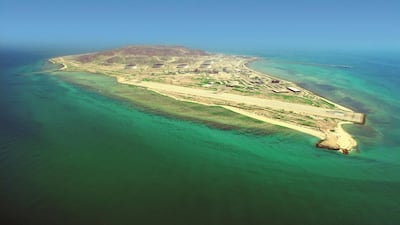Abu Dhabi National Oil Company (Adnoc) is combining its two largest offshore operations, part of its broader effort to streamline management and operations and drive an entrepreneurial culture in what is expected to be a prolonged low oil price environment.
The two companies that are being combined – the Zakum Development Company (Zadco) and the Abu Dhabi Marine Operating Company (Adma-Opco) – account for the bulk of Abu Dhabi’s offshore oil production, which is expected to reach 1.7 million barrels per day by some time next year.
Overall Abu Dhabi production is about 3.1 million bpd.
The reorganisation will mean that the two companies will be dissolved and their ownership combined into one “NewCo”. The chief executive of Adma-Opco, Yasser Saeed Al Mazrouei, will head up both Adma and Zadco while the reorganisation proceeds. Zadco’s chief, Saif Nasser Al Suwaidi, will retire.
“The consolidation of Adma-Opco and Zadco is a logical step … [given] Adnoc’s recent focus on driving efficiency, performance and profitability,” said Sultan Al Jaber, Adnoc’s chief executive and Minister of State. Mr Al Jaber said the consolidation “will facilitate enhanced operational performance while providing strategic benefits for future growth and advanced technology integration … It will [also] unite our offshore experience, streamline governance and decision-making, and give management a better line of sight.”
Since he took over earlier this year, Mr Al Jaber has made sweeping changes to the state oil company, starting with the top layer of management, where he named Abdul Munim Saif Al Kindy as director of exploration development and production.
Most of the chiefs of the 18 operating companies were also changed, with some long-overdue retirements as well as promotions for a new generation. Further consolidation within the organisation is expected.
The combination of the main offshore operations into one unit will not affect the shares or fiscal terms of the partners in the concession, Adnoc said. It owns 60 per cent of Zadco and of Adma-Opco. Following the combination, Adnoc will own 100 per cent of the new company and have separate operating agreements with the concession holders. ExxonMobil has a 28 per cent stake in Zadco, with Japan Oil Developing Co (Jodco) holding 12 per cent. BP owns just under 15 per cent of Adma-Opco, with Total of France owning just under 14 per cent and Jodco, 12 per cent.
The programme to lift offshore production to 1.7 million bpd from 1.4 million bpd was put at US$25 billion when it was announced three years ago, although costs have been dropping sharply since oil prices collapsed by 70 per cent over the past two years. The increase in offshore production is part of a programme to lift overall output capacity to 3.5 million bpd.
“This [decision] won’t impact any of the production targets that have been set,” said an Adnoc spokesman. “We don’t want to disrupt the ongoing operations or capex [capital expenditure] plans or production plans that will fall under the NewCo.”
Zadco’s largest project is the Upper Zakum field, which is the world’s second largest offshore field, with 50 billion barrels of reserves. It is about 84 kilometres north-west of Abu Dhabi city and its development will lift production to 750,000 bpd from 640,000 bpd in two phases, costing about $10bn. ExxonMobil is studying proposals to raise production there to 1 million bpd by 2024.
Adma-Opco operates two major fields, Umm Shaif and Lower Zakum, which lie 150km and 63km north-west of Abu Dhabi. Its Umm Lulu and Nasr fields have been undergoing a $3bn project development over the past two years, including laying hundreds of kilometres of pipeline to move oil and gas to the export facility at Das Island, which Adma-Opco also operates.
The second phase of development of Umm Lulu, due for completion in 2018, should lift oil production above 100,000 bpd.
Adnoc officials would not put a dollar amount on the synergies and efficiencies expected by the combination of operations, but indicated that it would be of the order of hundreds of millions of dollars on an annual basis.
“We believe that this consolidation process … will help to raise the operational performance and lower cost through synergies and efficiencies, to the benefit of all shareholders,” said Hatem Nuseibeh, UAE country head for Total. “This model actually already exists in some other countries and proves to be very efficient, for example Qatargas has four different joint ventures with different shareholders.”
The creation of two separate operating companies was historically because initially, the Japanese partner was the only one interested in developing the Upper Zakum project.
The offshore development in Abu Dhabi’s relatively shallow waters has been unique in the construction of a network of man-made islands. “The two separate companies don’t use each other’s islands but … they can consolidate use of those,” an Adnoc spokesman said.
amcauley@thenational.ae
Follow The National's Business section on Twitter

